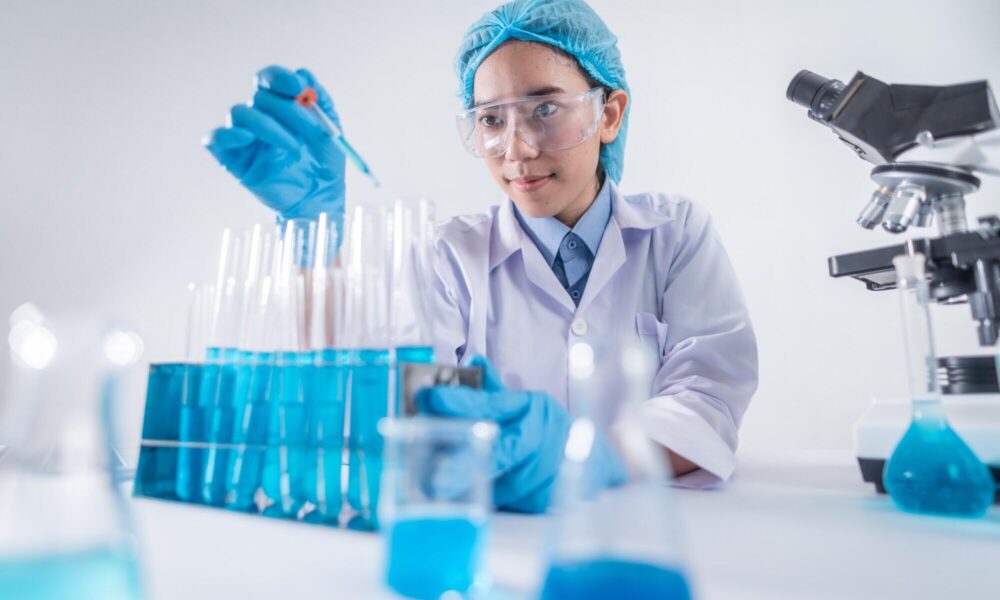Have you ever wondered what makes your medications not only effective but also safe? It all hinges on a critical, yet often overlooked hero in drug development: process chemistry. This specialized field is where science meets innovation to ensure that each pill you take is as intended.
Process chemistry doesn’t just make drugs. It perfects them by enhancing every facet from potency to safety. By understanding this, we can appreciate not only the ‘what’ but the ‘how’ of our most crucial medicines.
This article will unveil the intricate world of process chemistry to demonstrate its indispensable role in turning raw chemicals into lifesaving pharmaceuticals. So, let’s dive deeper and discover how process chemistry continuously shapes the pharmaceutical landscape.
What is Process Chemistry?
Process chemistry is the scientific discipline that allows us to understand and control the processes involved in transforming a laboratory discovery into a pharmaceutical product that can be mass-produced. This field plays a crucial role throughout the drug development lifecycle. It ensures that the production of medications is consistent and scalable.
The Role of Process Chemistry in Drug Development
In the development of new drugs, process chemistry is instrumental in optimizing the chemical processes needed for drug synthesis. This optimization is vital for ensuring the safety and efficacy of pharmaceuticals.
For instance, the careful adjustment of reaction conditions can lead to increased yields and purity of the final product. This is essential for meeting the stringent quality controls required in drug manufacturing.
Key Components of Process Chemistry
Key components of process chemistry include reaction optimization, scale-up processes, and purification techniques.
Reaction optimization involves fine-tuning chemical reactions to maximize efficiency and minimize waste. Scaling up a reaction from a lab bench to industrial production must be done carefully to maintain product quality. Purification processes are designed to remove impurities and ensure that the active pharmaceutical ingredient meets regulatory standards for safety.
Benefits of Effective Process Chemistry
Effective process chemistry enhances the safety and effectiveness of drugs while reducing production costs and time. For example, optimizing a reaction process can decrease the amount of waste produced. This not only lowers environmental impact but also reduces costs associated with waste disposal.
Moreover, efficient process chemistry ensures that drugs meet the necessary quality assurance standards before they reach consumers. This is crucial for patient safety.
Challenges in Process Chemistry
Despite its benefits, process chemistry faces several challenges. One major challenge is the difficulty of scaling up laboratory processes to full production levels without compromising quality or efficiency. Another is adapting to the ever-changing regulatory environment that governs drug manufacturing.
To overcome these obstacles, companies often rely on the expertise of PhD scientists. They specialize in chemical process development and can innovate solutions that maintain the integrity of the specialty chemical throughout the scale-up process.
The Future of Pharmaceuticals
As we explore the essential role of process chemistry in drug development, it becomes clear that this field is pivotal in ensuring the effectiveness and safety of medications. Process chemistry is the backbone of pharmaceutical innovation, transforming raw ingredients into powerful medicines. Our journey through the world of specialty chemicals and quality assurance underscores the necessity of meticulous chemical process development.
To learn more about how PHD scientists and rigorous standards sculpt the landscape of drug manufacturing, visit our blog.
Description: Explore the pivotal role of process chemistry in drug development. Uncovering its crucial impact on creating effective pharmaceuticals.
